Edit: I found the answer. Scroll to the bottom of this question.
I am working on a NodeJS authentication server and I would like to sign JSON Web Tokens (JWT) using google signatures.
I am using Google Cloud Key Management Service (KMS) and I created a key ring and an asymmetric signing key.
This is my code to get the signature:
signatureObject = await client.asymmetricSign({ name, digest })
signature = signatureObject["0"].signature
My Google signature object looks like this:
My question: How do I sign a JWT using the Google signature?
Or in other words, how do I concatenate the Google signature to the (header.payload) of the JWT?
The JWT should look something like this:
eyJhbGciOiJIUzI1NiIsInR5cCI6IkpXVCJ9.eyJzdWIiOiIxMjM0NTY3ODkwIiwibmFtZSI6IkpvaG4gRG9lIiwiaWF0IjoxNTE2MjM5MDIyfQ. (GoogleSignature)
The Code I am using:
signing:
async function sign(message, name) {
hashedMessage = crypto.createHash('sha256').update(message).digest('base64');
digest = { 'sha256': hashedMessage }
signatureObject = await client.asymmetricSign({ name, digest }).catch((err) => console.log(err))
signature = signatureObject["0"].signature
signJWT(signature)
}
Creating the JWT:
function signJWT(signature) {
header = {
alg: "RS256",
typ: "JWT"
}
payload = {
sub: "1234567890",
name: "John Doe",
iat: 1516239022
}
JWT = base64url(JSON.stringify(header)) + "." +
base64url(JSON.stringify(payload)) + "." +
???signature??? ; // what goes here?
}
Verifying:
async function validateSignature(message, signature) {
// Get public key
publicKeyObject = await client.getPublicKey({ name }).catch((err) => console.log(err))
publicKey = publicKeyObject["0"].pem
//Verify signature
var verifier = crypto.createVerify('sha256');
verifier.update(message)
var ver = verifier.verify(publicKey, signature, 'base64')
// Returns either true for a valid signature, or false for not valid.
return ver
}
The Answer:
I can use the toString() method like so:
signatureString = signature.toString('base64');
AND then I can get the original signature octet stream by using
var buffer = Buffer.from(theString, 'base64');
